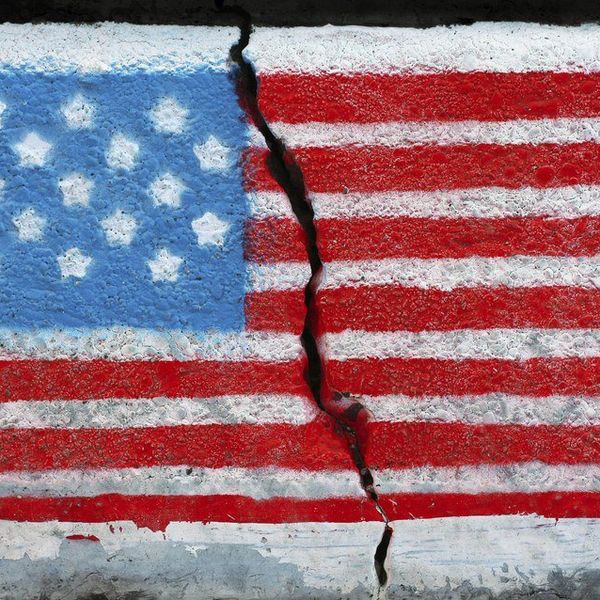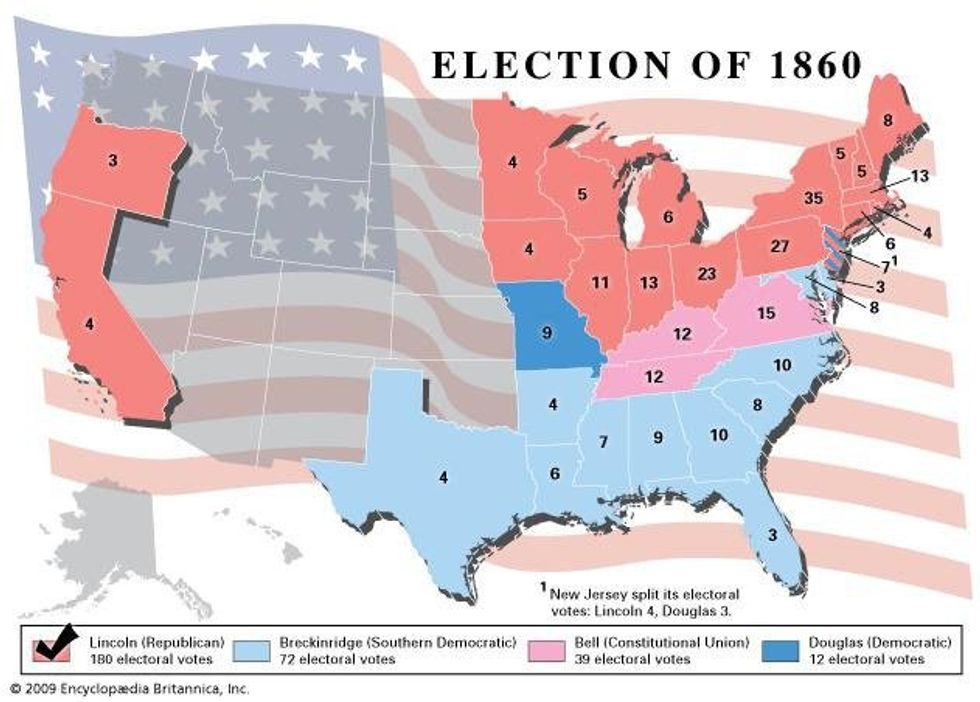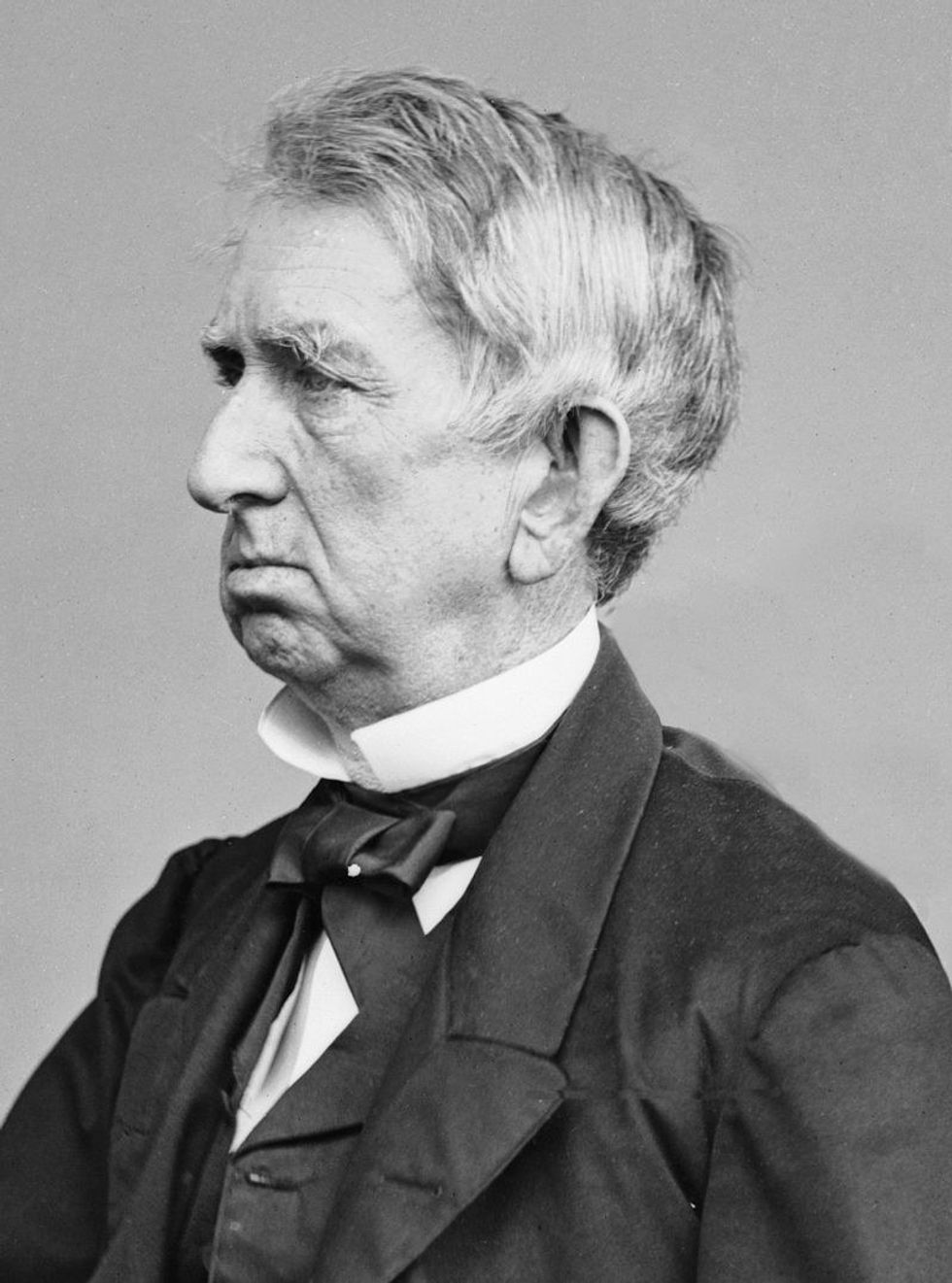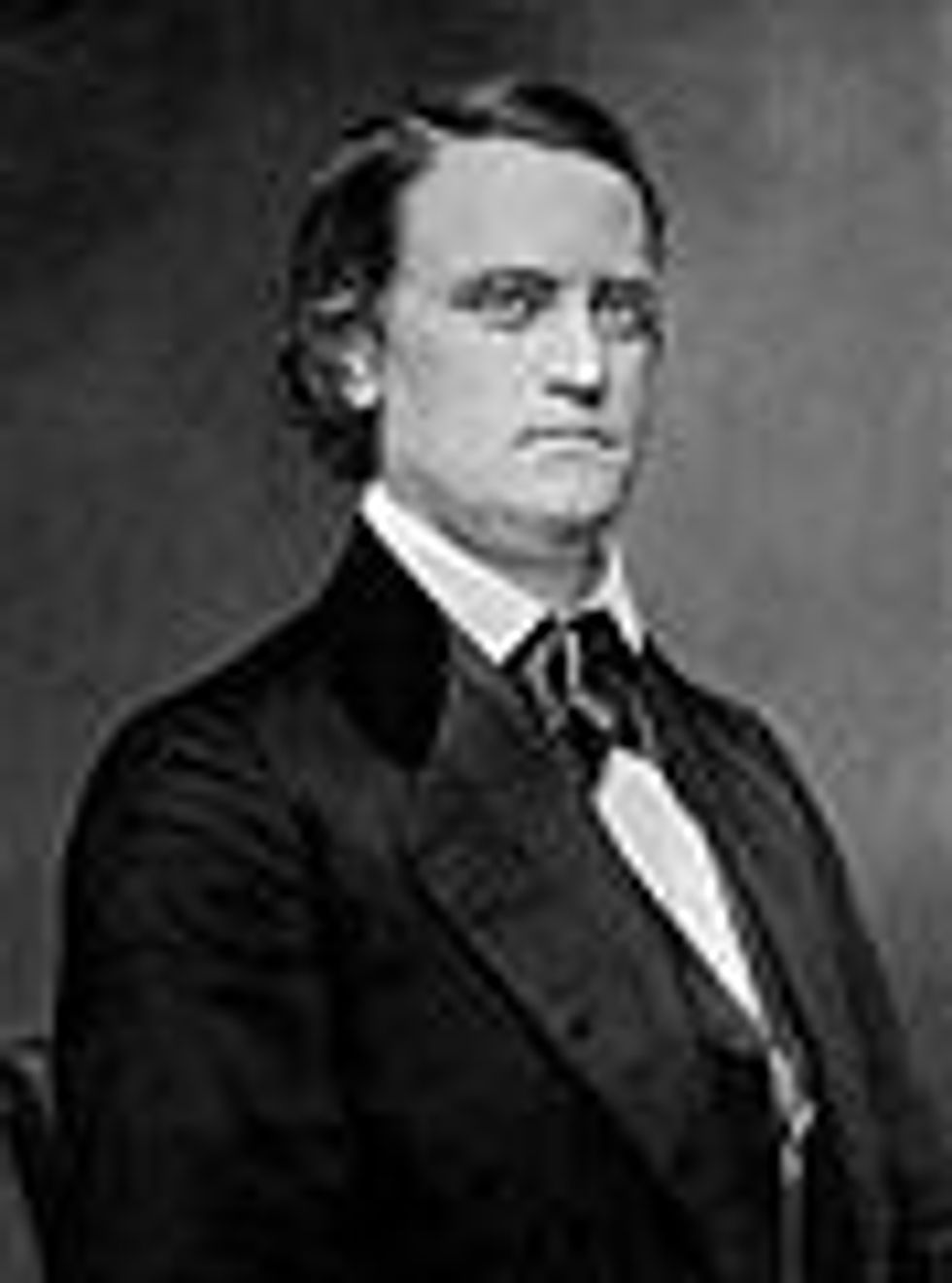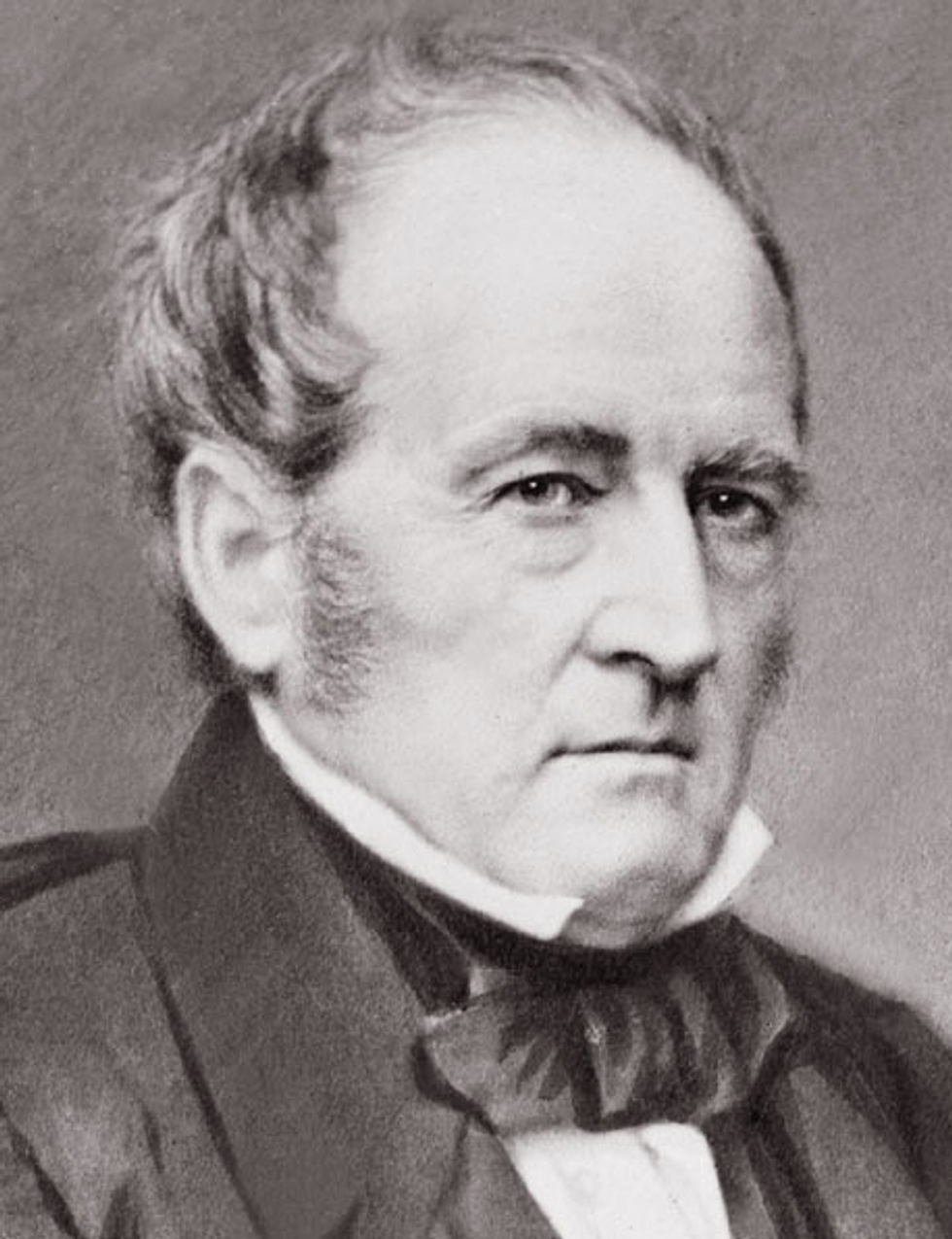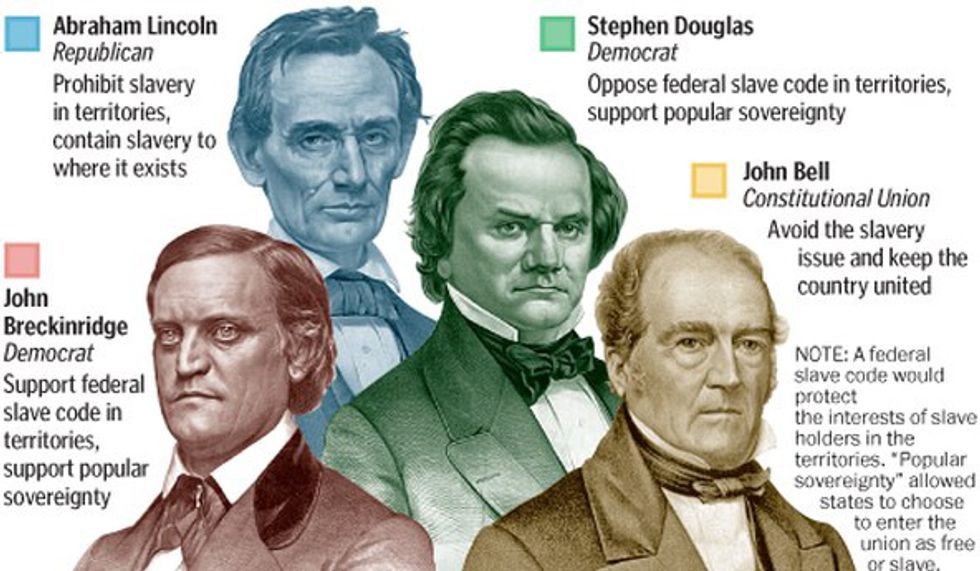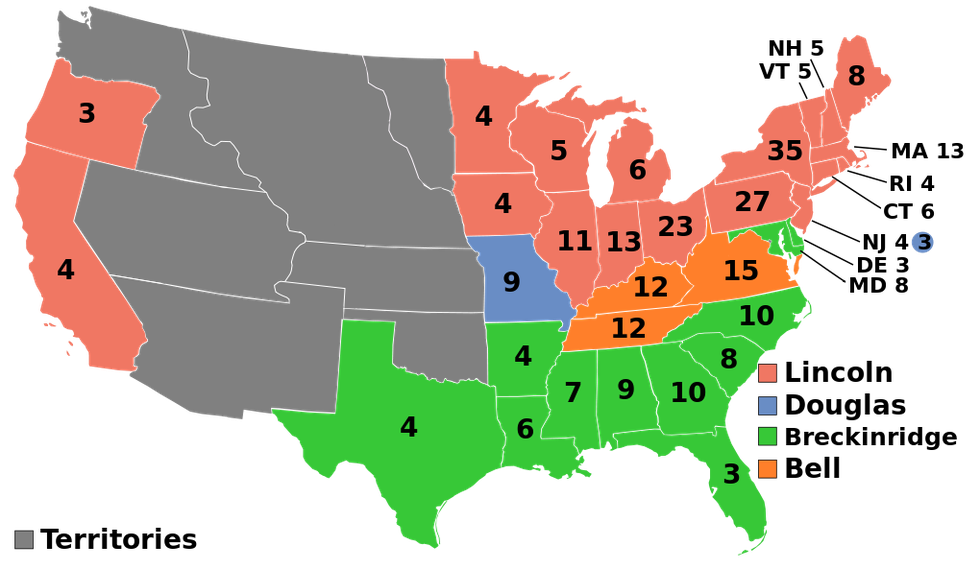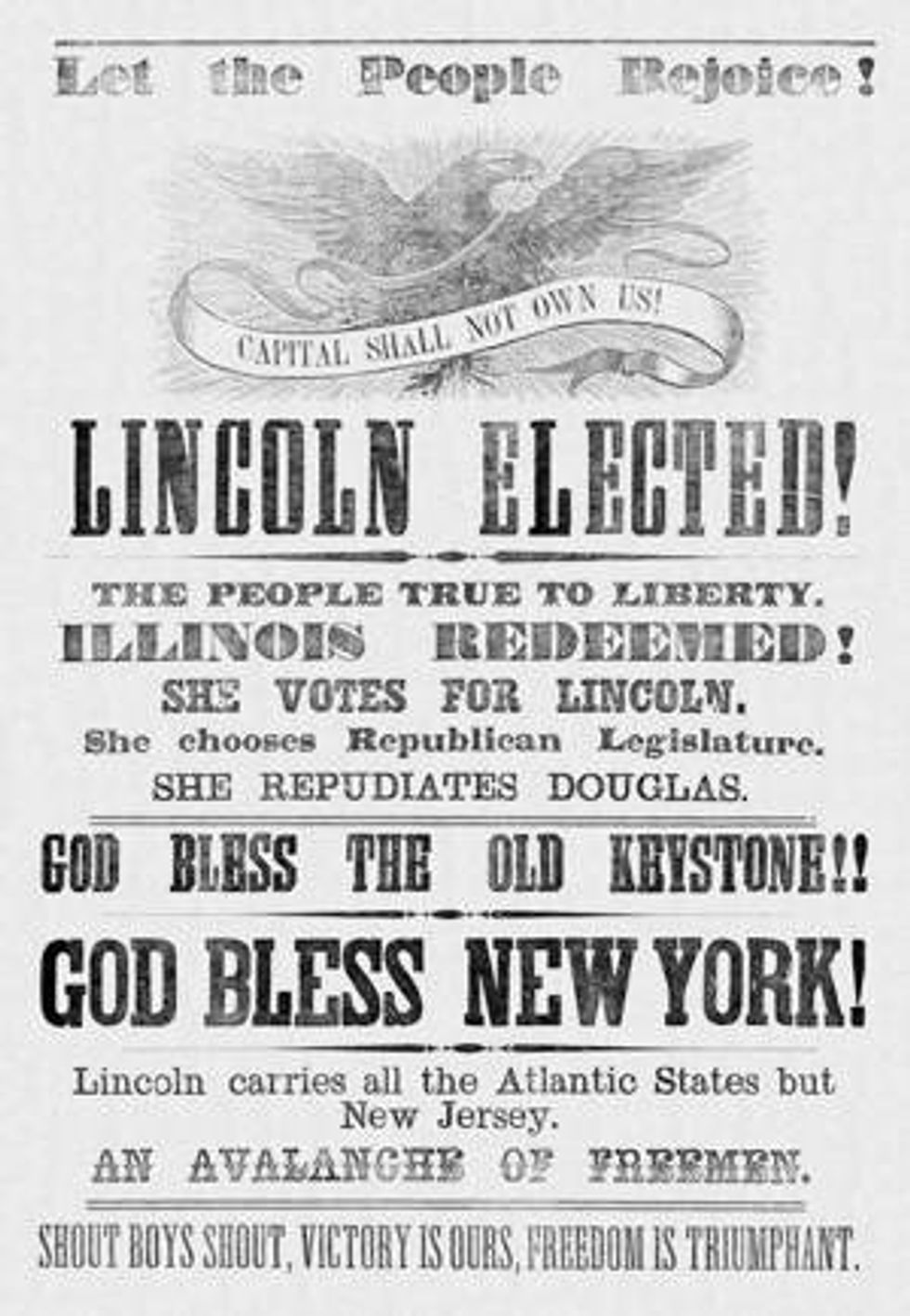As we near the 2016 Presidential Election, voters become divided over which political party they will vote into office. Usually a Republican or a Democrat will win the election and the losing voters will be angry, but the country will continue as it had before. The peaceful transfer of power is common in the history of the United States, except in 1860. Following the election of the Republican nominee, Abraham Lincoln, seven states would secede from the Union before his inauguration, and the nation would be plunged into four years of civil war.
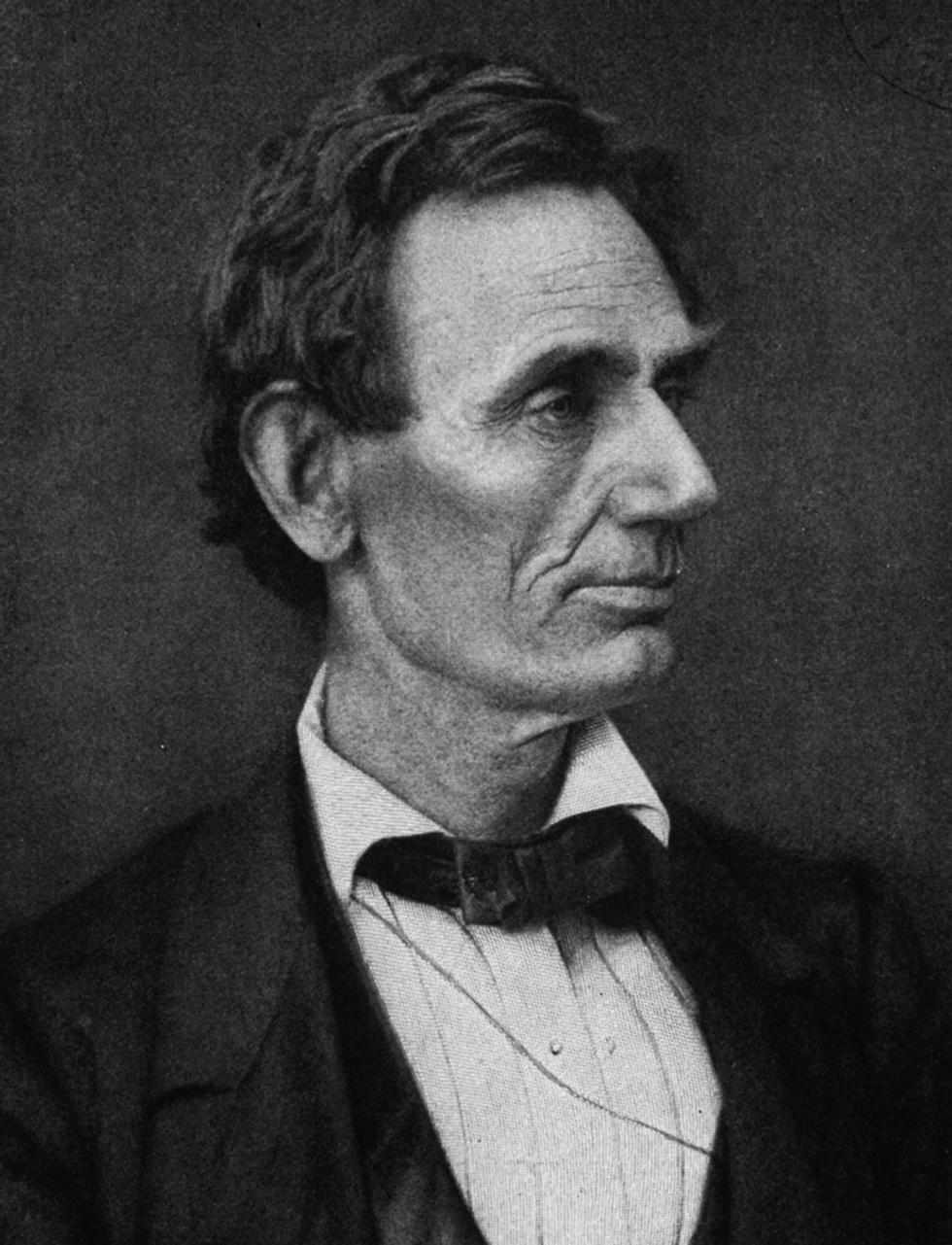
The divisive issue of the election and the resulting war was the institution of slavery. The Republican Party nominated Abraham Lincoln based on his moderate stance on slavery. Lincoln did not want to interfere with slavery where it already existed, but wanted to prevent its extension into the territories. This set him apart from the original Republican front-runner William Seward (LIncoln's future Secretary of State). Seward originally aligned himself with Radical Republicans who sought for the immediate abolition of slavery. He would then alienate the Radicals when he took a more moderate stance in order to gain more widespread support from the party. Seward's loss of the Radicals vote ensured Lincoln's nomination. However, the Radical Republicans distrusted Lincoln because of his moderate stance, and would be a thorn in his side for his entire presidency.
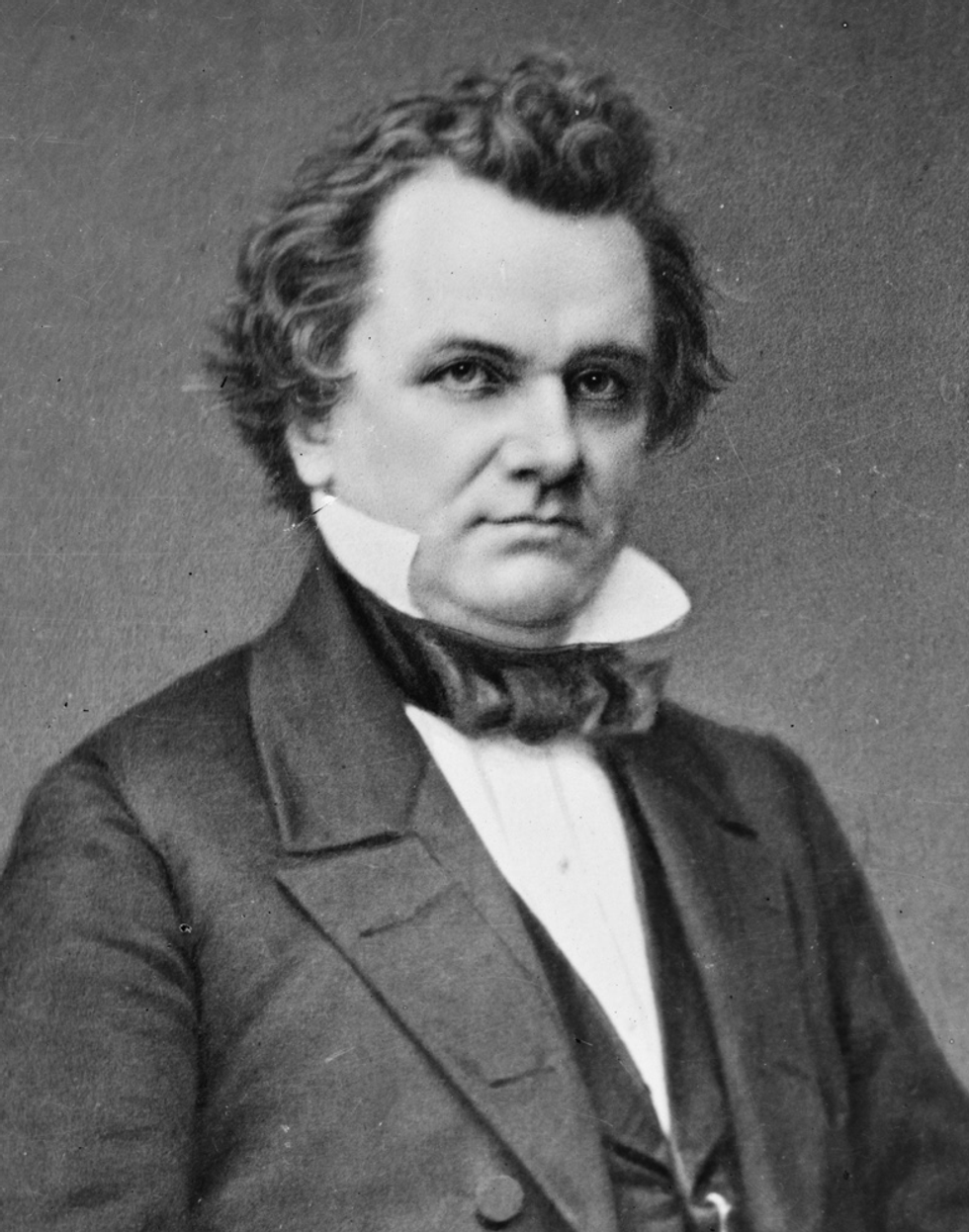
The Democratic Party was even more divided over slavery than the Republicans. The initial Democratic Convention held in Charleston was adjourned because the front-runner, Stephen Douglas, did not receive the amount of votes required for his nomination. This was in part due to the fact that 51 Southern Democrats walked out on the convention, because of a platform dispute. These delegates were known as "Fire-Eaters" and were extreme supporters of slavery. Where Stephen Douglas believed slavery should be decided through popular sovereignty, Fire-Eaters wanted slavery to be spread to the territories regardless of whether the voters wanted it or not. The Democrats would reconvene in Baltimore and the once again the Southern Democrats walked out, but this time they split from the party. The Northern Democrats in Baltimore would nominate Stephen Douglas on a platform for popular sovereignty and the Southern Democrats would nominate John C. Breckinridge, the sitting Vice President, on a pro-slavery platform.
A fourth party was formed by conservative members of the former Whig Party, the Know-Nothing Party, and a few Southern Democrats who were against secession. The new Constitutional Union Party sought to prevent secession by avoiding the issue of slavery altogether. Following a meeting in Baltimore, the newly formed party would nominate John Bell with the motto, "The Union as it is, and the Constitution as it is."
The election was held on Tuesday, Nov. 6, 1860 and had the second highest voter turn-out in American history with 81.2% (highest being the 1876 election with 81.8%). The election is know for the sectionalism shown by the voters. Although Lincoln won the election with 59.41% of the electoral votes (180), he only received 39.82% of the popular vote. Lincoln did not carry the vote in a single slave-holding state. In fact, of the 11 states that would secede from the Union, only Virginia cast ballots for Lincoln. Although Stephen Douglas received the second most popular votes, 29.46%, he received the lowest amount of electoral votes, only carrying electoral votes in Missouri and New Jersey (the only candidate to receive electoral votes from a slave and free state). John Breckinridge would come in second in the electoral vote with 23.76% (72), carrying the majority of the southern states.

The election of 1860 is considered to be one of the direct causes of the Civil War. On Dec. 20, 1860, a little over a month after the election, South Carolina became the first state to secede from the Union. It would be followed by Mississippi, Florida, Alabama, Georgia, Louisiana, and Texas, all before Lincoln's inauguration. Virginia, Arkansas, North Carolina, and Tennessee would not secede until Lincoln called for 75,000 volunteers to put down the rebellion, following the shots fired at Fort Sumter on April 12, 1861. Throughout Lincoln's entire presidency the country would be at war. With this in mind, it is important to realize that a well liked president is not always what is best for the country. Abraham Lincoln is universally considered one of the greatest presidents, yet 11 states rebelled as a result of his election. With less than 50 percent of the population in his favor, Lincoln stilled managed to do what was necessary to save the country.

